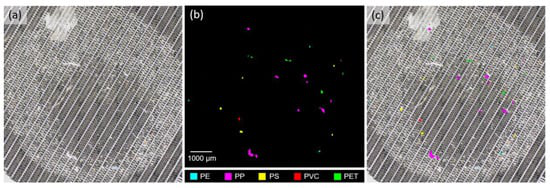Recently, ANSO-CAS Joint Research Project entitled “The Impact of Microplastics on Brain Health and Reproductive System Health and the Damage of Barrier Function” has made substantial progress on the impact of environmental pollutants on reproductive health through the integrating brain-testis axis. The project has been carried out by Prof. Lei Li of Shenzhen Institute of Advanced Technology, CAS. The research paper entitled “Perfluorooctanesulfonic acid exposure altered hypothalamic metabolism and disturbed male fecundity” has been published online on June 23, 2022 by Science of The Total Environment.
Microplastics could absorb persistent organic pollutants including Bisphenol A, perfluorooctanesulfonic acid (PFOS) etc. Previous studies have revealed the reproductive toxicity of PFOS through its effects on testicular tissues and cells. However, the effects of PFOS on male fecundity are not limited to the testes. With the support of the ANSO grant, Li lab from Shenzhen Institute of Advanced Technology, CAS formed a strong collaboration with Prof. Chris CK Wong's group from Croucher Institute for Environmental Sciences, Department of Biology, Hong Kong Baptist University and Prof. Keng-Po Lai's team from Guilin Medical University.
PFOS exposure altered hypothalamic metabolism and disturbed male fecundity at Brain-Testis axis
The study demonstrated that oral PFOS exposure decreased the function of the Luteinizing hormone (LH)/Luteinizing hormone receptor (LHr) and decreased epididymal sperm motility. Consistently, testicular transcriptome analysis revealed that PFOS altered the expression of a cluster of genes associated with sperm motility and steroidogenesis. In mice exposed to PFOS, c-Fos immunostaining showed activation of the lateral septal nucleus, paraventricular thalamus, and locus coeruleus, which are known to be related to anxiety-like behaviors. Metabolomic analyses of the hypothalamus revealed that exposure to PFOS perturbed the translation of proteins, as well as the biosynthesis of neurotransmitters and neuromodulators. Altogether, the activation of brain nuclei, shift of hypothalamic metabolome, and reduction of LH/LHr circuit resulting from PFOS exposure suggested the toxicant's systematic effects on male reproduction.
Another multi-team cooperation project led by the Cooperative PI from Hong Kong Polytechnic University also made periodical progress. The study found that the feces of residents in Hong Kong contained a large number of microplastics. The results indicated the severity of microplastic pollution and the importance of conducting research in assessing its impact on human health. The study, entitled "Preliminary Findings of the High Quantity of Microplastics in Faeces of Hong Kong Residents", was published in the journal toxics on July 23, 2022. Currently, the international team of the Project is accessing the combined impact of microplastics and PFOS on reproductive and brain health with contributions from Jahangir Nagar University (Bangladesh), Bangladesh University of Engineering and Technology, Kyushu University (Japan), Hong Kong Polytechnic University, and Guilin Medical University.
Microplastics in Faeces of Hong Kong Residents, China
Citation:
Zijie Li, Ziyi Lin, Shuqin Ji, Keng-Po Lai, Hin-Ting Wan, Chris Kong Chu Wong, Lei Li, Perfluorooctanesulfonic acid exposure altered hypothalamic metabolism and disturbed male fecundity, Science of The Total Environment, Volume 844, 2022, 156881, ISSN 0048-9697, https://doi.org/10.1016/j.scitotenv.2022.156881.
Ho, Yuen-Wa, Jin Yan Lim, Yun Kit Yeoh, Jia-Chi Chiou, Yuyan Zhu, Keng Po Lai, Lei Li, Paul Kay Sheung Chan, and James Kar-Hei Fang. 2022. "Preliminary Findings of the High Quantity of Microplastics in Faeces of Hong Kong Residents" Toxics 10, no. 8: 414. https://doi.org/10.3390/toxics10080414
Source: LI Lei, Shenzhen Institute of Advanced Technology, Chinese Academy of Sciences
E-mail: saralilei@siat.ac.cn


